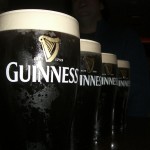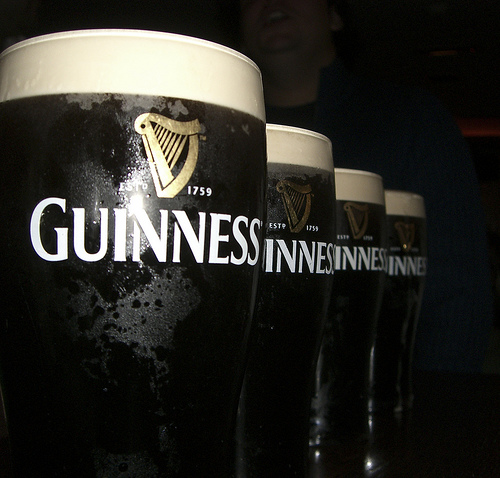
Everyone knows that the last 15 or 16 years have been a roller coaster for the stock market. The dot com mania, when geeks became rock stars, was followed by the inevitable crash, when they were demoted to being geeks again. After that we had the “Financial Crisis” when it was the bankers who lost the social popularity contest, having caused damage to large sections of the economy, as well as real people’s jobs and bank balances. So, yes, it has been a volatile period but there are plenty of companies that have done well just by quietly going about their business, increasing earnings and raising dividends.
On 17 December 1997, Guinness merged with Grand Metropolitan to form Diageo. Add a dash of competent, energetic management to a great business and remarkable things can happen; Paul Walsh was that man for Diageo. Just over 16 years, and a large splash of Walsh later, and the company’s cocktail cabinet had expanded steadily to include bottles of Baileys, Bushmills, Johnnie Walker, J&B, Smirnoff, Crown Royal Canadian Whisky, Hennessy, Gordon’s gin, and Captain Morgan rum. In addition to the strong stuff, the company also produces beers, including Guinness (of course), Harp (much maligned), Red Stripe, Kilkenny, and Smithwick’s. Finally, for the more celebratory drinker, Diageo offers Dom Perignon and Moet & Chandon.
So what would have happened if you had treated yourself to £1000 shares on that December day, when everyone else was thinking about technology companies and wondering whether Tony Blair was going to fulfill his potential? Well, it wouldn’t have been an imaginative investment, given that Microsoft, Intel, and Cisco were almost inventing new industries at the time, but it would certainly have been a successful one. After paying your costs, you would have received 168 shares of the newly formed drinks company (starting price £5.84). Assuming, firstly, that you held the shares within an ISA or equivalent tax-free account, and, secondly, that you successfully ignored the temptation to trade them in for a dot-com company or bank over the years that followed, then what would you find today in your brokerage account?
You would find that you still had 168 shares, but that these were now worth a grand total of £3024 (current price £18.00). Rounded to 16 years, this means that you would have had compound annual growth of 7.29%
Not only that, but your cash balance would have been lifted by a further £833.78 (496.3p x 168), which is the amount Diageo would have paid you in dividends over the period. Adding this to your £3024, your holding in Diageo would now be worth £3857.78. So, if you include the dividends received to calculate your total return, you would have had a compound annual growth rate of 8.93%. Of course, any particularly perspicacious investors or uncompromisingly frugal types who chose to reinvest their dividend income, rather than spend it in bars or elsewhere, would have done even better as the dividend income they received would also have grown and further enhanced their return over the period.
This year alone, you would be looking forward to receiving dividends worth £85.43 (analyst estimates) on those 168 shares, which would be a yield of 8.5% on the initial purchase price paid 16 years before. That would be your share of the company’s earnings to be returned to you directly, but a roughly similar amount would be retained by the Board to be reinvested on your behalf in the company to ensure further profit and dividend growth in the coming years (Diageo currently pay out about 45% of per-share earnings as dividends and reinvest the remainder).
And what did you have to do to enjoy this steady growth and income? Nothing more than “sit on your ass” (as Charlie Munger delicately puts it) with, perhaps, a glass of whiskey to enhance your gentle state of repose. No special insight or technical know-how was required to guess that Guinness and Johnnie Walker would still be popular beverages 15 or 20 years in the future. All that you needed to do was to ensure that you did not overpay when buying your shares and, once purchased, avoid the temptation to try to outsmart your fellow investors by subsequently trading in and out of them.
The point of this rear-view mirror exercise for me is to realise that if you manage to step back from day-to-day market noise and just let the brand do the work for you, then little else is required for pleasant developments to occur. The difficult parts are to avoid flitting to apparently better ideas every few months and to avoid succumbing to periodic attacks-of-the-zeros (Help! But what if everything goes to zero?!) when bear markets occur. Instead, try just sitting there and doing nothing while Guinness does the work for you. The Guinness family certainly didn’t make their money by selling up every time they feared that interest rates might rise.
Disclosure: Long DGE
Disclaimer: This post is not a recommendation to either buy or sell. Please consult your investment advisor.
